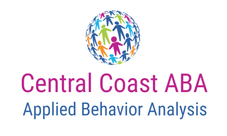 Happy Holidays Central Coast ABA families and followers! This season’s blog will focus on letting go of excess control over decisions your kiddos make and trusting that they’ll make good use of the skills and lessons you taught them as they grow more independent. First, this is tough! The first time you become a parent, worry becomes incessant almost immediately. This is especially true when kids are toddlers- they’re just so fast and curious. They want to get into anything and everything! As your kids grow older into pre-teens, teens, and even through adulthood, the worrying does not stop. In fact, it can even increase knowing that they may soon be on their own. So, how do we actively combat what is called “helicopter parenting?” What is “Helicopter Parenting?” Helicopter parenting can be defined as parents who are overly focused on their children; hovering over them trying to monitor their every move, just like a helicopter. This is not to say that parents need to be completely hands off and let their kids do whatever they please, but teaching in a way that allows for the child to do what is expected of them on their own. For example, in an article written by Esther Wojcicki for CNBC called, “I Raised 2 Successful CEOs and a Doctor. Here’s the ‘Unpopular’ Parenting Rule that I Always Used on My Kids,” she explains that her number one rule was, “Don’t do anything for your kids that they can do for themselves." She expresses that that, “...[parents] constantly remove obstacles so that our kids don’t have to deal with challenges” without having children figure out solutions to a problem. However, allowing children explore solutions may create an environment of critical thinking, which we all know is an important life skill to have. She goes on to say that, “... the more you trust your children to do things on their own, the more empowered they’ll be.” Furthermore, she provides examples as to how she was able to accomplish this, starting with simple, everyday actions. See Below:
Chores are some of the greatest independent tasks. This is something they will take with them into adulthood and use as a lifelong skill. Doing the dishes, learning how to grocery shop, and being able to budget are all skill kids learn over time and can be strengthened through repetition and real-life practice. Special Needs and Independence The second article that adds to this topic is called “Tips to Help Youth with Disabilities Learn Independent Living Skills,” by Julie McKinney, MS. The three biggest points the author emphasizes are giving your kids a heads up, teaching and practicing independent living skills, and giving support during and after their transition. In the “Heads-up” section, she explains that communication and starting conversations early about what they can expect in continued education, supported or independent living spaces and even workplaces. This can make the transition easier if they know what to expect and what their life will be like. It is never too late to begin using this strategy. Beginning to use this type of language in infancy is very beneficial and can also be a written part of their IEP when the child enters school. In the next section titled “Teach and Practice”, the author talks about skills we learn in childhood that we use in adulthood and often take for granted! Cleaning, cooking, and even grocery shopping as mentioned earlier. Giving tasks to your child to complete on their own is a great first step (in their skill range of course). A good example she gives is tasking them refilling prescriptions: 1. Give clear instructions on how they do this and write out a list of steps. 2. Have them practice. 3. Then let them make the call and stand by in case they need help. 4. Give less help as they gain confidence in doing the task on their own. Finding tasks that involve things they’re interested in is a good way to give them responsibilities involved with those interests (e.g., loving animals and learning how to take care of a pet). Lastly, “Support” expresses that support comes from you, the rest of the family, and other services on state and local levels. ABA services can be a great way to start this process for kids with autism and other related diagnoses. Giving them the tools to learn how to communicate effectively will help when needing to advocate for themselves. Whether this be in their school’s disability services office, navigating government benefits like SSI and Medicaid, and even turning to their job coach to ask for help and for more support if need be. Kids Deserve More Credit Setting your children up to succeed with less help from you is the goal. Teach them to learn how to deal with situations that life will throw at them. While they learn and get used to doing things on their own, it is important to stress that you’ll always be there to support them should they need help. Having a safety net to fall back into is less stressful when they know they have people in their corner they can rely on for help! Esther Wojcicki ends her article with saying “When you trust kids to make their own decisions, they start to feel more engaged, confident, and empowered. And once that happens, there’s no limit to what they can achieve” and we whole-heartedly agree! Below are the links for the references for this blog post: www.cnbc.com/2022/10/29/i-raised-2-successful-ceos-and-a-doctor-heres-the-no-1-unpopular-parenting-rule-i-always-used-with-my-kids.html https://www.exceptionallives.org/blog/independent-living-skills Was this information helpful? Please share your thoughts, experiences, and feedback with us. You can find us on Facebook, Instagram and LinkedIn @centralcoastaba.
0 Comments
Leave a Reply. |
AuthorOur Board Certified Behavior Analysts (BCBAs) are dedicated to sharing their expertise on topics that are important to you. Archives
January 2024
Categories |

 RSS Feed
RSS Feed
